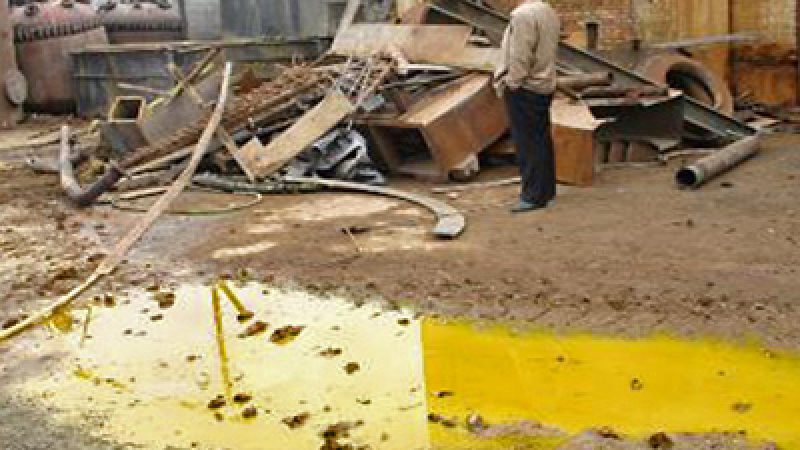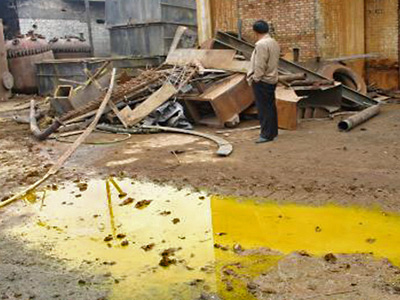
6-Million Tons of Chemical Waste Stockpiled Across China

6-million tons of toxic chromium waste are piled around 20 cities across China, and they have been there for 2 decades.
State-run Xinhua News Agency reported on Tuesday, a booming chemical industry during the 1950s has left a lasting problem. After some of the chemical plants closed in the early 90’s because of pollution concerns, stockpiles of chromium slag were left behind, and continued to pollute the environment.
In central Henan Province, there are 6 such waste piles stored inside concrete structures, the local Dahe Daily reports. In Gongyi City, 50,000 tons of the chemical waste has been left standing less than 2 miles from a river for almost 20 years.
[Villager, Henan Province]:
“There was the No.2 Chemical Plant. It processed mines and left the chromium slag behind without treatment. It’s toxic and causing pollution.”
Chromium slag contains toxic hexavalent chromium, which is a known carcinogen. Just small amounts of it can be lethal. Their poor storage has caused the substance to seep into soil and waterways over the years, endangering residents.
In 2005, the Chinese regime’s State Council ordered local authorities to clean up the disposal in 5 years. But the Dahe Daily reports, in Henan Province where 500,000 tons of the chromium slag remains, disputes over who will pay for the clean-up have delayed the process.
 Foto: NTDTV
Foto: NTDTV




![Pressekonferenz vom Bundeskanzler und schwedischen Ministerpräsidenten Kristersson [Livestream]](https://images-de.epochtimes.de/uploads/2025/01/Thumb-Scholz-Schwedenempfang2-400x225.jpg)






















vielen Dank, dass Sie unseren Kommentar-Bereich nutzen.
Bitte verzichten Sie auf Unterstellungen, Schimpfworte, aggressive Formulierungen und Werbe-Links. Solche Kommentare werden wir nicht veröffentlichen. Dies umfasst ebenso abschweifende Kommentare, die keinen konkreten Bezug zum jeweiligen Artikel haben. Viele Kommentare waren bisher schon anregend und auf die Themen bezogen. Wir bitten Sie um eine Qualität, die den Artikeln entspricht, so haben wir alle etwas davon.
Da wir die Verantwortung für jeden veröffentlichten Kommentar tragen, geben wir Kommentare erst nach einer Prüfung frei. Je nach Aufkommen kann es deswegen zu zeitlichen Verzögerungen kommen.
Ihre Epoch Times - Redaktion